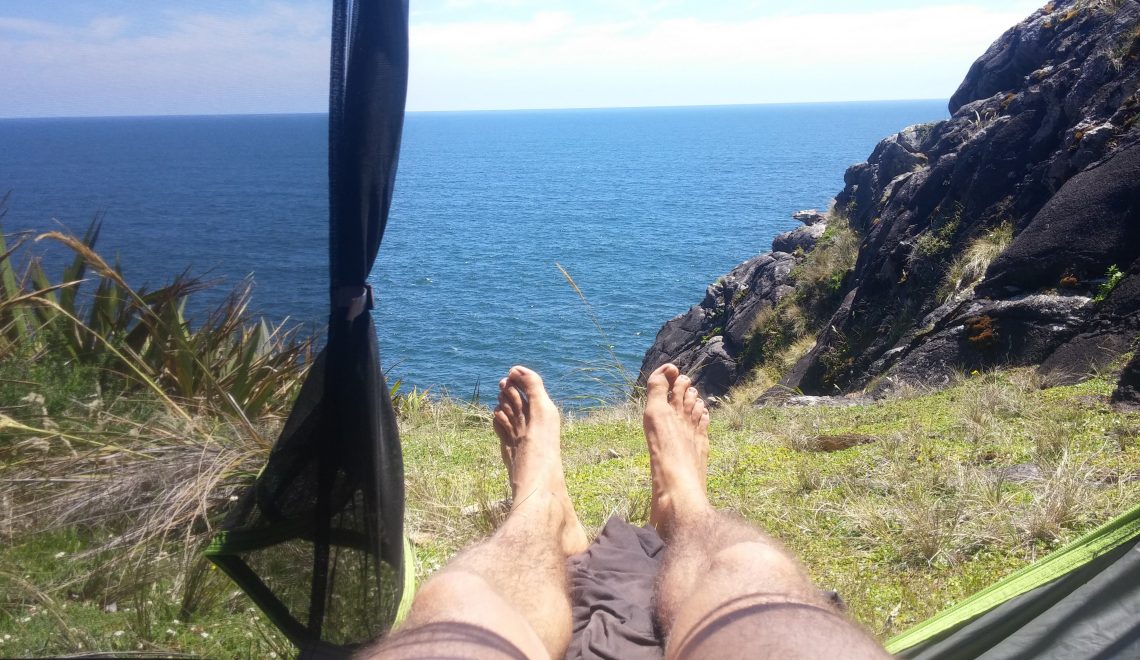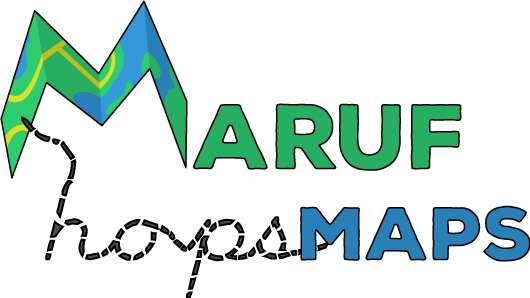The Myth of Freedom Camping in New Zealand

In the future, I predict silence will be stupidly expensive commodity, and unadulterated nature even rarer. Right now lying in my tent beside a tree-encircled pond, near a flowing river under pounding rain in New Zealand. It feels like nature, except for the droning bass in the distance, which shatters any notion that I’m alone. Once I embraced the fact that I’m a loner, being alone is what I desire most in this hectic system called life. With three quarters of New Zealand’s population on the north island, I thought I’d find peace and nature on the untamed South Island. Tonight, however, I’m not. I’m freedom camping.
When I arrived here, everything told me freedom camping is the NZ word for wild camping. My host who has camped in the wild told me so, and all the people who pick me up hitchhiking only know one term: freedom camping.
Like I said, I though freedom camping was the same as wild camping, camping (sometimes illegally) where you decide in the nature. In theory freedom sounded fitting. Though not as wild as wild camping, I could understand New Zealanders having their own word for it I had to reframe it in my mind as something like, ‘be free to camp where you want,’ or ‘have the freedom to choose where you’ll camp.’ I went along with it. I’ve been going along with it… until now. I’ve slept the past 24 nights in my tent all over the island and freedom camping is not wild camping.
The Real Freedom Camping
Freedom camping is like Communism, it sounds good in theory, then breaks down in reality. With Communism you got lousy administration leading to food shortages and a starving population. With freedom camping you get intermittent resonating bass, a reeking closet full of shit and piss to avoid, a trashed camp spot, and sometimes beautiful nature. Word of mouth from the locals reached me that that NZ department is underfunded to maintain the freedom camping sites.
To me, there’s a flaw in the system and NZ is far from the worst example. NZ tourism is a consumerist package. Everything from rental vans, adventure activities in Queenstown, to camping is made possible with a credit card. Alongside that, her laws: prohibit camping in the wild, restrict people to campsites, and let them continue consumerist tendencies. For that you get freedom camping, a pretentious name for free camping.
Going Wild
These past three weeks, I’ve been wandering off, looking for the pathway so overgrown with thorns to deter others, or the hidden path, which leads me somewhere scenic and solitary. I choose to wild camp. Though, the locals look at me confused when I explain it, and think in terms of official campsites, they eventually help me find somewhere to sleep, with the understanding that I’ll leave the site spotless. I think wild camping could be completely sustainable if governments and communities made an effort to teach people how to do it vs telling them not to do it.
This also got me wondering how the wording we use subconsciously defines an activity. Freedom is such an abstract word. Using it with camping makes the definition fuzzy, because everyone has a different definition for freedom. Let’s not forget about the money focused who see it only as freedom camping. There are also the upholders, afraid to get a fine. There’s a comfort in going camping in a safe spot where there’s no chance of midnight visits from park rangers or, worse, angry owners. I get it, but I think we’re bs’ing ourselves by calling it freedom camping.
That said, wild camping in NZ does exist. I’ve wild camped in many countries around Europe and it’s unique here. If you want to experience NZ for what makes her unique, learn what it takes to wild camp responsibly, leave your car and dive into the nature with your tent and experience the only thing better than silence, the ambience of nature. Hell, it’s natural.
If you’ve never wild camped, here’s a good article by Atlas & Boots on how to wild camping, etiquette, what you might need, and how to do it. Happy Camping!

Is freedom a mis-understood word? Perhaps typical meaning for a nation that colonize and terrorize other inhabited nations. Americans think that can come and pollute someone elses environment and think it is an americans right to pollute the planet with their thoughts.
Do you know “Ma-ori” is a european created word as is the language the colonists created in New Holland! Your ancestors perhaps?
If you had any knowledge or had done any true research, you might visit your colonising “ma-ori” in the descendants of the Port Nicholson Trust
Go back to your American thoughts of freedom to shit all over other nations when you do not even understand the creation of documents to know what your own Declaration of Independence is!
Go back to you freedom to be ignorant and shit all over someone elses nation, and you can keep your Clinton mentality.
I agree that it isn’t really freedom camping BUT so many foreigners have left their shit, rubbish and toilet paper lying around the beautiful sites everywhere that NZer’s have dispaired and are now trying to restrict where the crappers can go. Very few of us can understand what drives a person to deficate in a public place where others – specially children – want to explore and play.
How dare you disrespect NZ like this. If you had a bad experience at this camp don’t generaluse it too all camps in NZ. A lot of people, kiwis and tourists, really love these places. Most because of your bad experiences you’ll put people off visiting NZ. RIDICULOUS, WHO DOES HE THINK HE IS!??
As a regular camper and New Zealander my understanding of freedom camping is much different to what you seem to have heard. Freedom camping sites are designated spots where self contained campers are allowed to park for free. Generally they do not have a toilet or rubbish bins so this is why you must be self contained (have a toilet onboard your camper). We no longer have many completely free places to camp here in NZ due inconsiderate people leaving rubbish, defecating, lighting fires in dangerous places and polluting waterways. However DOC provides some great campsites in remote areas for minimal fees which can be very peaceful at the right time of year. If you really want to wild camp put your tramping boots on and start walking one of our many beautiful hikes into the native forests, your sure to find a quiet wild spot to pitch your tent.
Just read your article and as an American who has lived in New Zealand for the past 12 years, I totally agree with your view on the “freedom camping” here. It is quite misleading. You were luckier than I was at my first “freedom camping” experience as someone in a nearby tent played Kenny Rogers, Dolly Parton, Merle Haggard, etc. for 9 HOURS SOLID. I had to strategically park my car so that the “neighboring” campers couldn’t see my every move, and the sounds of all the kids and the 4-wheeled bikes etc. were not what I had in mind and completely foreign to all the camping experiences I had in the states.
I too prefer solitude and nature at it’s purest and you would think it would be the ultimate experience in New Zealand. I found out that what you refer to as “wild camping” is very well know here as “going bush”. I have gone bush a number of times. It is the best experience ever but yes you risk the chance of being caught and fined $2,000. That really sucks because those of us who do go bush have the skills and know-how to leave the place with no trace of us ever being there. What has happened in New Zealand is that ignorant inexperienced people camp where they want, defecate where they want and leave all their waste behind to the disgust and dismay of the locals. It’s no wonder now that “freedom camping” is even more restricted and the majority of “free” camping sites are only available to those who have self-contained campervans (meaning you crap in your own potty and take it with you), not my idea of camping.
Yeah! Fucking Americans, go back to America!
Fair enough, not all campsites, but many. Some are much prettier than others, however, I believe it’s better to put off a bad a tourist which will pollute your country, rather than have him come. Just my opinion.
Great writing as usual. Good to hear about your experiences – if people are upset it’s more on them than you. Keep writing!
Why should there be freedom camping. The free air evacuations that thousands of cheap tourists recieve from NZ tails should be enough. Why would a country want it’s wilderness flooded with people that don’t spend money to cover the cost things like rescue.